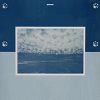Tracks featured on
Most played tracks
Ceres Motion
Mother Mallard's Portable Masterpiece Company
Earthquack Recordings•1973
Oleo Strut
Mother Mallard's Portable Masterpiece Co.
Earthquack Recordings•1976
Oleo Strut
Mother Mallard’s Portable Masterpiece Co.
mnml ssgs•2010
Theme From After The Fall
Mother Mallard's Portable Masterpiece Company
Cuneiform Records•2001
Part 2
David Borden, Mother Mallard
Cuneiform Records•1991
C-A-G-E Part II
Mother Mallard's Portable Masterpiece Co.
Earthquack Recordings•1976
Downtown
Mother Mallard's Portable Masterpiece Co.
Cuneiform Records•0
Thanks!
Your suggestion has been successfully submitted.







